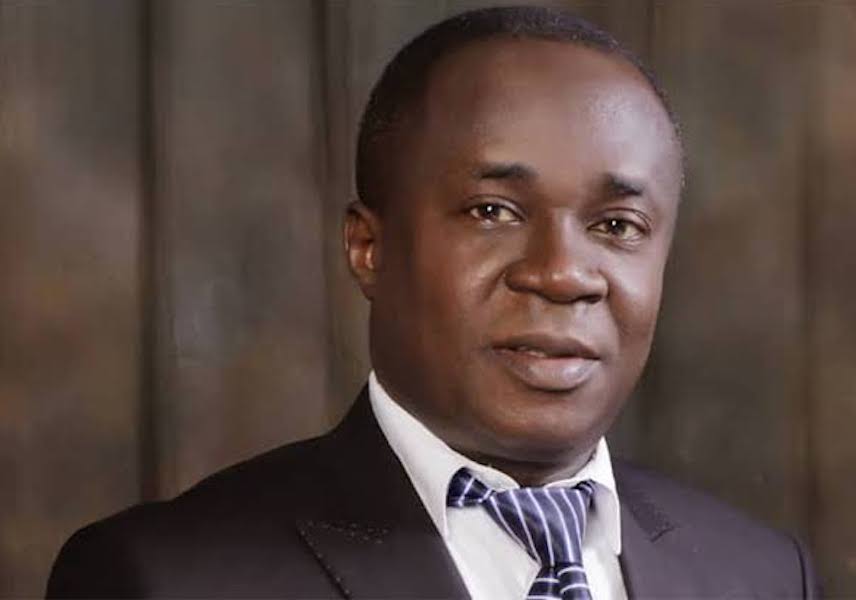To finance and attain the objectives of the National Development Plan (NDP) of the nation, the importance of establishing capital market-based infrastructure funds has been emphasized.
Professor of Capital Market at Nasarawa State University Keffi, Uche Uwaleke, laid the emphasis in his keynote address, delivered at a conference organized by the Capital Market Correspondents Association of Nigeria (CAMCAN) on Saturday in Lagos.
Speaking on the theme, ‘Leveraging the Capital Market in Financing the National Development Plan’, Uwaleke said Nigeria’s Capital Market development is key to attaining the country’s ambitious goal of a $1 trillion economy, while noting that this requires proactive policy direction.
He said that financing of the NDP through the capital market will depend to a large extent on breaking the barriers to its development, pointing that efforts to meet the current challenges of the Nigerian capital market will inevitably set the stage for it to play a prominent role in not only achieving the growth targets set in the country’s NDP but also the dream of a $1 trillion economy within the next 6 years.
Uwaleke believed that the capital market is the market for securities, where companies and governments can raise medium-to-long term funds and that a well-developed capital market allows governments and companies to access long term funds and facilitate the mobilization of private capital into key sectors such as infrastructure.
Dwelling on the structure of the plan, he explained that the NDP, aims at making Nigeria a country that has unlocked its potential in all sectors of the economy for a sustainable, holistic and inclusive national development, targets on five per cent growth rate in GDP on average during the Plan period, generate about 21 million full-time jobs and lift 35 million people out of poverty by 2025.
He further narrated that financing the Plan requires a total of N348.1 trillion investment commitment to achieve the objectives of the Plan and the investment of the government is expected to be N49.7 trillion (14.3%), while the private sector will fund the plan with the remaining balance of N298.3 trillion (85.7%).
Out of the N49.7 trillion contribution by the government, federal government capital expenditure will be N29.6 trillion (8.5%) while the capital expenditure of the sub-national governments is estimated to be about N20.1 trillion (5.8%).
The implementation of the National Development Plan is expected to thrive on the basis of a strong partnership between the public and private sector.
Drawing statistics from Malaysia, Uwaleke, said the country provided opportunity and the ability to develop specific segments of the debt capital market that has been best reflected in infrastructure and Non Interest financing.
“Relative to GDP, the value of the Malaysian project-finance bond market stands among the world’s biggest. Malaysia is ranked 21st out of 137 countries for the quality of its infrastructure, aided by the mobilization of long-term local currency financing from the bond market to support private sector participation.” he said.
According to the World Bank, infrastructure bonds accounted for 26 per cent of overall bond issuance between the years 1993-2019, and in the last decade, the bond market in Malaysia has financed up to an average of US$3.4 billion per year in the electricity, gas, and water sectors.”
In his recommendations, he said government should utilize more infrastructure bonds when borrowing from the domestic market and that like Malaysia and India, Nigeria should promote more infrastructure funds.
To achieve that both the Federal and Sub National governments should periodically invest in the Nigeria Infrastructure Fund, and there should be facilitation of increased participation of pension funds and insurance companies in the capital market, among others.
READ ALSO FROM NIGERIAN TRIBUNE
WATCH TOP VIDEOS FROM NIGERIAN TRIBUNE TV
- Let’s Talk About SELF-AWARENESS
- Is Your Confidence Mistaken for Pride? Let’s talk about it
- Is Etiquette About Perfection…Or Just Not Being Rude?
- Top Psychologist Reveal 3 Signs You’re Struggling With Imposter Syndrome
- Do You Pick Up Work-Related Calls at Midnight or Never? Let’s Talk About Boundaries







